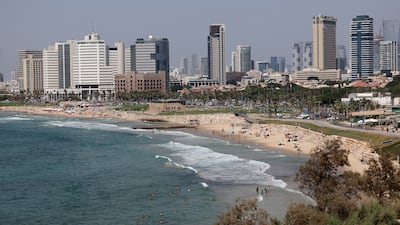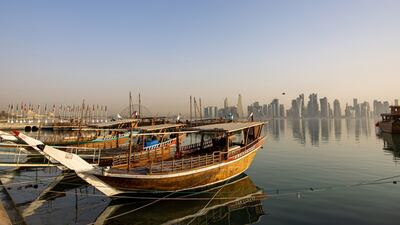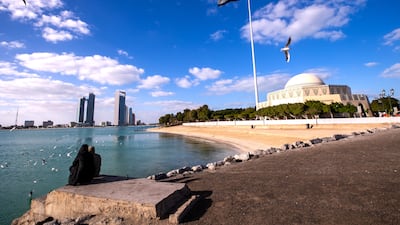Dubai continued to lead the Middle East and North Africa region in terms of global engagement, while Abu Dhabi was among the top ten countries globally in terms of outlook, a study by management consultancy Kearney has found.
Dubai climbed one place to 22nd position out of 156 cities on this year’s Global Cities Index. This is also emirates’s highest ranking to date.
Tel Aviv was ranked second regionally and 52nd globally, while Doha stood third regionally and 57th worldwide. Other regional cities featured in the index include Cairo (fourth regionally, 61st globally) and Riyadh (fifth regionally and 70th globally).
The UAE’s capital Abu Dhabi also moved up a spot to reach 76 on the global rankings, according to Kearney.
The index measures the global engagement of 156 cities across five categories — business activity, human capital, information exchange, cultural experience and political engagement.
It offers insights into how high inflation globally, a slowdown in China, the ongoing economic and political repercussions of the Russia-Ukraine war and climate change have affected the cities' levels of global engagement.
“Cities around the world have shown declining scores on the index over the last six years — an indication of de-globalisation that predates the pandemic,” Abdo Al Habr, Kearney partner for the public sector in the Middle East, said.
“This year, while indicators of business activity and human capital have softened across the globe, the Mena region has displayed promise. In the Middle East, governments have been proactively setting targets for socio-economic development for years now, and it is this prudent, systemic strategy that has shaped their positive futures.”
Dubai recorded progress in terms of business activity, human capital and political engagement compared with last year. Abu Dhabi also registered an increase in the business activity and political engagement segments of the index, the report said.
The top four cities on the index — New York, London, Paris and Tokyo — remained unchanged from 2021. Beijing rose by one place from 2021 to enter the top five, trading place with this year’s sixth-placed city, Los Angeles.
Average index scores have fallen across all regions and not only for the most globally connected cities.
“The magnitude of decline in scores is steeper for many cities in lower-income regions than for those in North America or Europe. This is likely due to the delayed effects of Covid-19 and the initial rapid recovery of many wealthier cities,” the report said.
Many African cities experienced only moderate declines in ratings, possibly due to their relatively lower connectedness to worldwide markets.
The Middle East as a region overtook China in the cultural experience dimension of the index. Through the pandemic, the region hosted some iconic global events, which resulted in increased local and international tourism.
The UAE hosted Expo 2020, which brought together 24 million visitors, and Qatar is hosting the Fifa World Cup next month, Kearney said. Saudi Arabia also recorded a rapid expansion of tourism since the launch of its National Culture Strategy in 2019.
Dubai topped the region in terms of cultural experience, while Riyadh recorded a 46-point increase in rankings, the highest jump in the category globally.
partner, public sector, Middle East at Kearney
Doha recorded a 17-point jump in the cultural experience category and topped the Mena region in sporting events, according to Kearney.
Meanwhile, Abu Dhabi was ranked ninth globally on Kearney’s Global Cities Outlook, which assesses how the 156 cities are creating conditions for their future status as global centres.
This is measured across four dimensions — personal well-being, economics, innovation and governance.
The outlook for Dubai rose five places to 11, while the outlook for Doha recorded a 23-point jump, the highest leap in the category in the region, bolstered by strong governance, according to Kearney.
London retained its top spot, with Paris, Luxembourg, Munich and Stockholm rounding off the top five.
“In the coming year, city leaders will have to prioritise their efforts and investments even more ruthlessly than in the past as they navigate what is likely to be an exceptionally challenging economic storm,” Rudolph Lohmeyer, Kearney partner, National Transformations Institute, said.
“Leaders will need to drive policy innovation to protect their most economically vulnerable residents and attract highest priority employers while ensuring fiscal sustainability.”
The report suggested ways in which leaders can address the challenges their cities face, such as inflation, slowing economic growth, rising debt and worsening inequality.
These solutions include increasing revenue and equity with targeted non-tax revenue, tapping carbon as an alternative revenue stream to fund green infrastructure and protecting the most economically vulnerable with targeted guaranteed-income programmes, among others.






